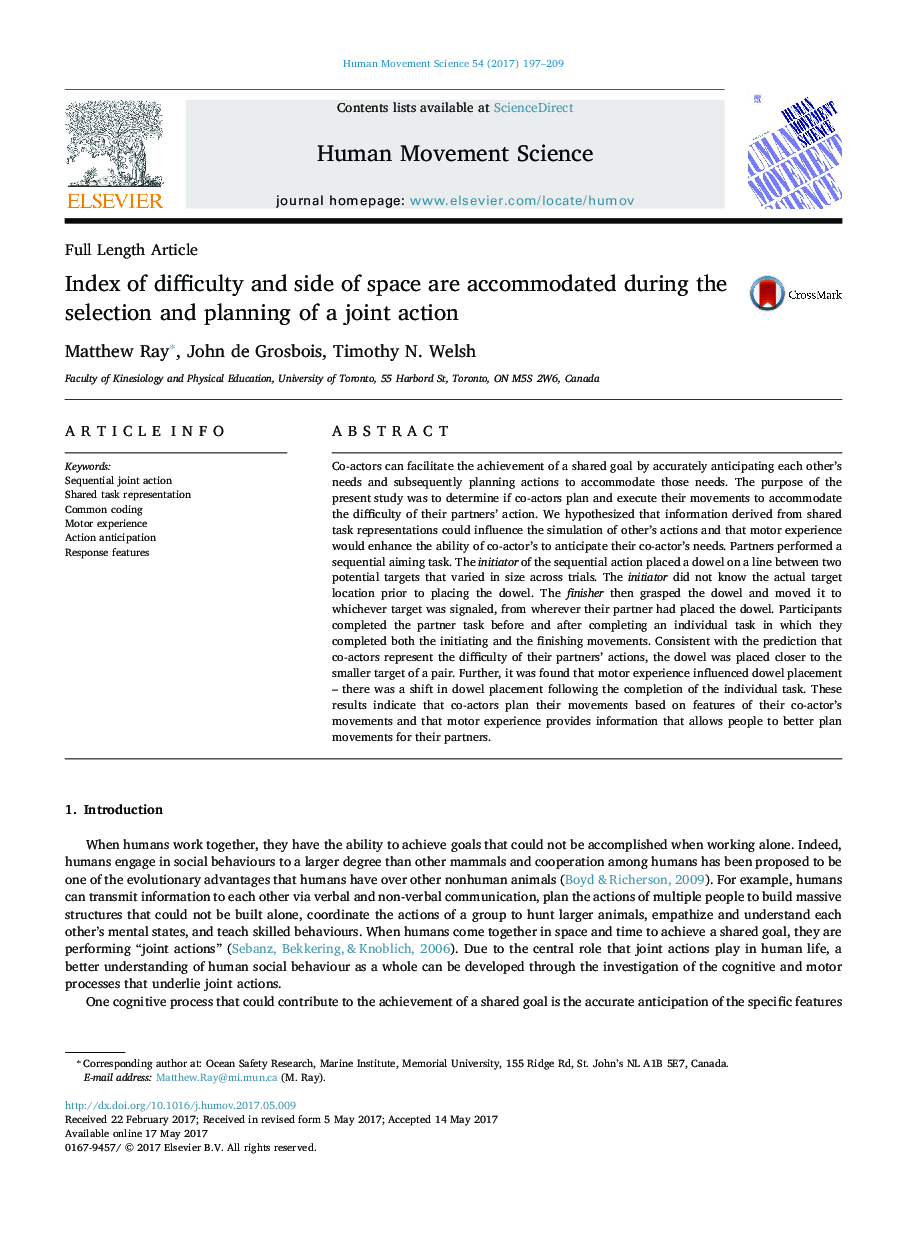| Article ID | Journal | Published Year | Pages | File Type |
|---|---|---|---|---|
| 5041979 | Human Movement Science | 2017 | 13 Pages |
â¢Individuals can represent the difficulty of their co-actor's potential actions.â¢Individuals plan joint actions to accommodate the difficulty of their co-actor's action.â¢First hand motor experience enhances the response selection and planning of joint actions.
Co-actors can facilitate the achievement of a shared goal by accurately anticipating each other's needs and subsequently planning actions to accommodate those needs. The purpose of the present study was to determine if co-actors plan and execute their movements to accommodate the difficulty of their partners' action. We hypothesized that information derived from shared task representations could influence the simulation of other's actions and that motor experience would enhance the ability of co-actor's to anticipate their co-actor's needs. Partners performed a sequential aiming task. The initiator of the sequential action placed a dowel on a line between two potential targets that varied in size across trials. The initiator did not know the actual target location prior to placing the dowel. The finisher then grasped the dowel and moved it to whichever target was signaled, from wherever their partner had placed the dowel. Participants completed the partner task before and after completing an individual task in which they completed both the initiating and the finishing movements. Consistent with the prediction that co-actors represent the difficulty of their partners' actions, the dowel was placed closer to the smaller target of a pair. Further, it was found that motor experience influenced dowel placement - there was a shift in dowel placement following the completion of the individual task. These results indicate that co-actors plan their movements based on features of their co-actor's movements and that motor experience provides information that allows people to better plan movements for their partners.
